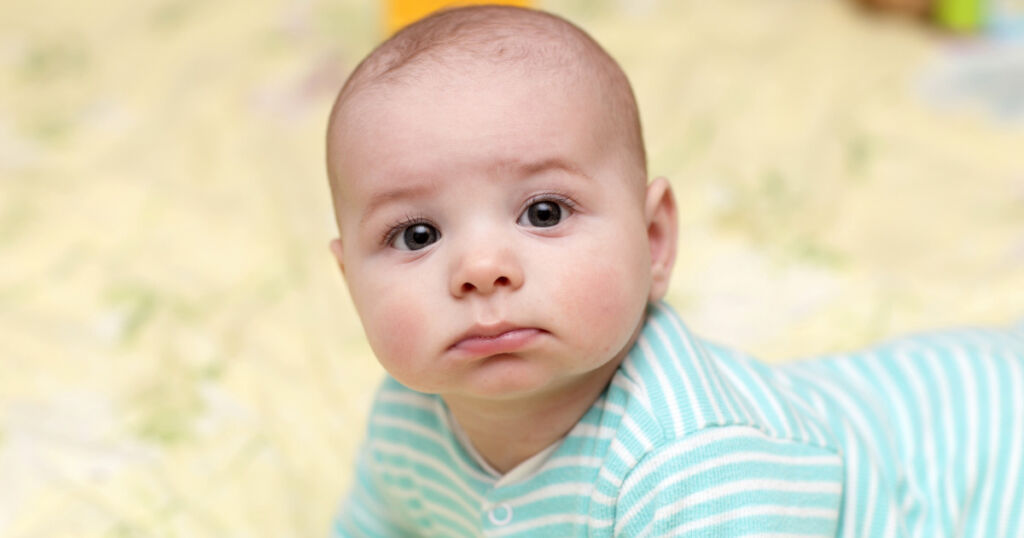My baby has eczema! What do I do?

The appearance of any rash on a baby’s skin is enough to send new (or not-so-new) parents into a panic. But it could be a few common skin ailments – including baby eczema, a condition that causes skin to become itchy, dry and red. Many babies develop eczema (including my youngest daughter, who has had regular flare-ups since she was born).
However the good news is that for many babies, eczema can be easily treated and managed, bringing relief for everyone involved.
What are the symptoms?
Atopic dermatitis is the most common form of eczema in babies and young children. When eczema flares up, you see patches of skin that are very dry, itchy, scaly, bumpy and enflamed. For children with lighter skin, eczema can appear red, while for those with darker skin, it may appear purple, grey or brown.
With babies, you generally see eczema on their face. Toddlers develop it on their knees, ankles and inside their wrists. And as children grow older, it might also appear in the folds of elbows and knees.
What causes eczema?
Some babies develop eczema not long after birth, however many outgrow it by the time they are 5 to 10 years of age. It can be genetic, but often those who do suffer from eczema have dry skin, easily irritated by external triggers such as:
- harsh chemicals found in perfumed soaps, bubble baths, shampoos and baby wipes containing alcohol
- close contact with fabric made of polyester or coarse wool
- overheating from clothes, bath or heated rooms
- playing in sand
- contact with common allergens such as dust mites in carpets, pets, grasses and pollen.
How do you treat eczema?
If your child has developed a rash and you’re not sure what it is, you should definitely consult your GP. If it is eczema, your doctor may prescribe a corticosteroid ointment or cream.
For mild eczema, you can buy mild corticosteroid creams over the counter from the pharmacy such as hydrocortisone 1% cream.
If the condition is more serious, your doctor may describe one that is stronger.
Good eczema management
While creams are good to deal with eczema in the short term, careful and consistent management is important and not hard to achieve. Here are some easy at-home tips to help you cope day-to-day with your little one’s eczema:
- Dress your baby in cotton and avoid polyester, elastin and wool
- Be careful which soaps, bubble baths, baby wipes and creams you use – try a simple fragrance-free bath oil or use sorbolene instead of soap
- Find a soap powder that is specifically made for sensitive skin
- Keep your little one’s baths short and warm, and avoid hot water on the skin
- Try to prevent your child from sitting near the heater or getting overheated.
Products to help
Keeping you baby’s skin moisturised by applying a basic emollient at least one a day, if not twice, can help. Even better, apply it after a bath or shower, as it will sink into the skin more effectively.
Tell Me Baby reviewers recommend the following products to help with mild eczema:
- Moogoo Eczema & Psoriasis Cream with Elderberry & Marshmallow (4.7 stars)
- Ego QV Baby Gentle Wash (4.6 stars)
- Mustela Stelatopia Emollient Balm (4.6 stars)
- Moogoo Eczema and Psoriasis Cream (4.3 stars)
- Mustela Stelatopia Emollient Cream (4 stars)
Read reviews of products for eczema here.
When should I go to the doctor?
If you are at all worried about your child’s skin, you should make an appointment to chat with your GP or family healthcare nurse. And definitely seek medical advice should the following occur:
- you suspect your baby has eczema for the first time
- your baby is very itchy and uncomfortable
- the eczema is bleeding, weeping, has become painful, infected or has developed pus
- after a few days of treatment, nothing has changed
- your baby is having trouble sleeping because of the itchiness
- your child has eczema and is generally unwell.













